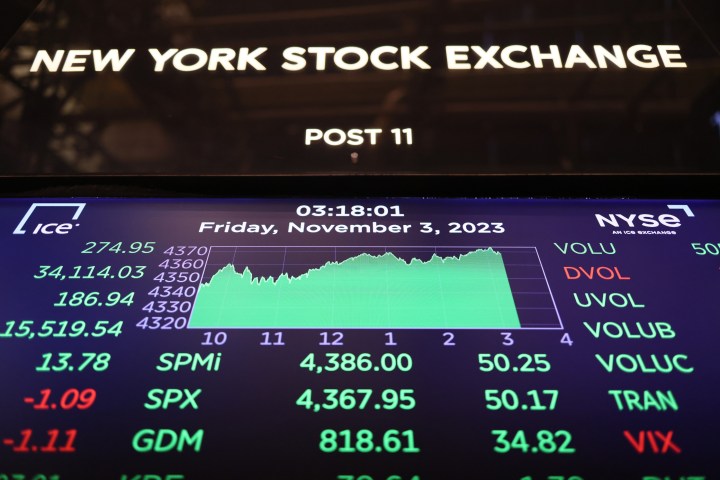
Can human market investors beat the algorithms?

This is just one of the stories from our “I’ve Always Wondered” series, where we tackle all of your questions about the world of business, no matter how big or small. Ever wondered if recycling is worth it? Or how store brands stack up against name brands? Check out more from the series here.
Listener Philip Cowan from Tacoma, Washington, asks:
Are the algorithms, of which I am sure there are many versions, something that people in the know could game? For example, if they see X Y and Z happening, they know some sort of action is soon to follow because the algorithms are programmed a certain way, so they try to beat the market by reacting in front of that surge or decline.
Algorithms are now responsible for a majority of market trades.
In theory, yes, you could get ahead of these algorithms if their trading behavior is obvious. But firms can make algorithms trade in a way that obscures what they’re doing, explained Alejandro Lopez-Lira, an assistant professor of finance at the University of Florida’s Warrington College of Business.
Algorithmic trading is a method in which computer programs are used to execute trades based on predetermined criteria.
“Suppose you want to buy companies that are undervalued because you know the total value of the company is small relative to its sales,” Lopez-Lira said. “You would buy companies where the price to sales ratio is less than one.” Software code can detect those types of companies and execute trades.
Or in scenarios involving high-frequency trading, the algorithm might place an order every time shares fall in price by more than 2% in five minutes. Typically, strategies are more complex, but this is the gist of how algorithmic trading works, Lopez-Lira said.
Lopez-Lira explained that in finance, you have what are called “informed” and “uninformed” traders. “Informed” traders, as the name suggests, make trades because they know information that’s advantageous for them. Those who are “uninformed,” on the other hand, make trades that aren’t based on new information. Maybe it’s the end of the month and they just need to cash out.
“Now, what the algorithms try to do — and in general, if you’re trading, what you want to do — is make your trades look as uninformed as possible, make them look as random as possible,” Lopez-Lira said. “Because otherwise, it is the case that someone can take advantage of you. And it is what’s called front running.”
So what investors will do is randomize the time and size of their trades. So say you’re one of these investors and you want to buy 100 shares of Apple. Lopez-Lira said an algorithm can place an order for one share right now, then seven shares in 13 seconds, then another 14 and another in 25 seconds.
That’s why it’s tough to try to beat the algorithms.
Dominik Roesch, an associate professor of finance at the University at Buffalo, said many people try to time the market. In cases where a share seems mispriced and it’d be an advantageous time to deploy a trading strategy, Roesch said there’s often a reason behind the price or there are barriers preventing people from using that strategy.
“If one finds a mispricing, I think the biggest question is, why is there a mispricing? Why does nobody trade against it?” he said.
He recalls the New York Times calling GameStop shares “overpriced” back in 2021 when the share price soared. A logical course of action might seem to trade against it, or short the stock.
In short selling, you borrow a certain number of shares from brokers, then sell them into the stock market at their current value. Once the share price falls, you can buy them back, and return them to the brokers.
“Shorting the stock at some point was so expensive, that if you even got shares to short, you would have to pay 100% of the stock price a year in borrowing fees. That’s extremely expensive. It’s extremely difficult,” Roesch said. So even though people initially shorted the stock, it became too costly.
There’s a lot happening in the world. Through it all, Marketplace is here for you.
You rely on Marketplace to break down the world’s events and tell you how it affects you in a fact-based, approachable way. We rely on your financial support to keep making that possible.
Your donation today powers the independent journalism that you rely on. For just $5/month, you can help sustain Marketplace so we can keep reporting on the things that matter to you.












